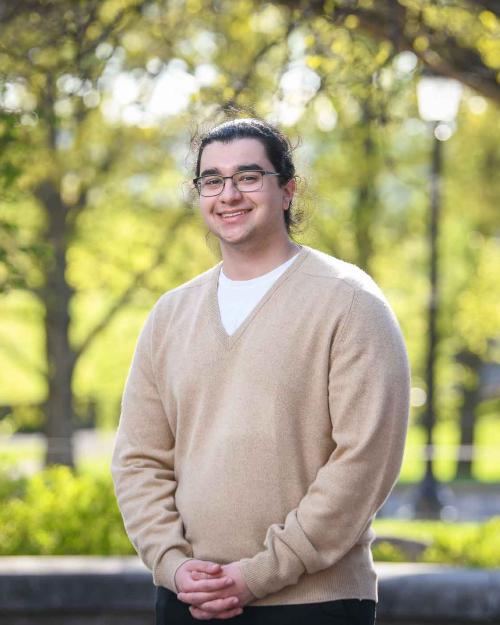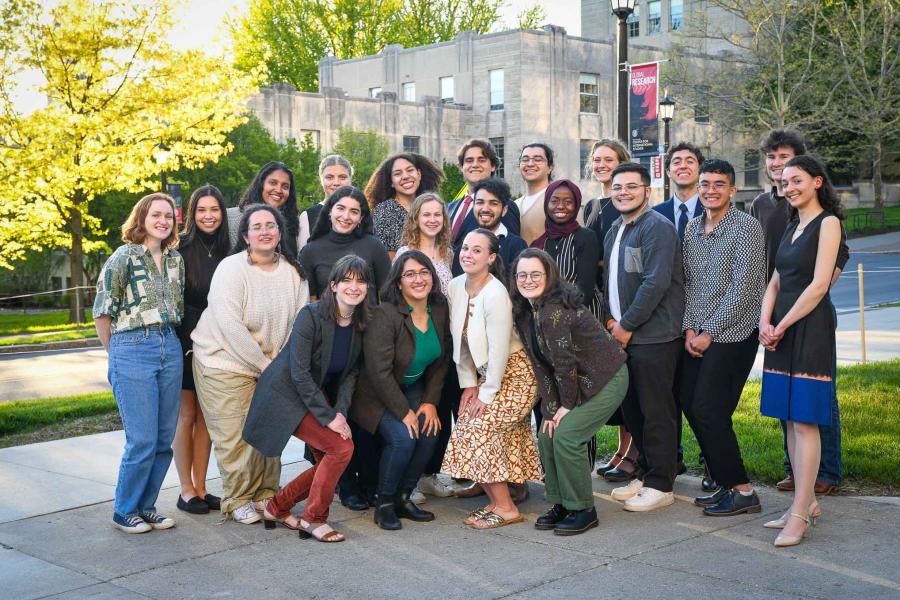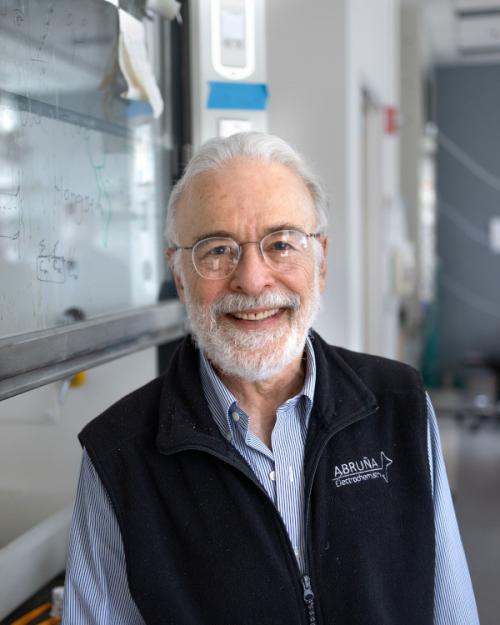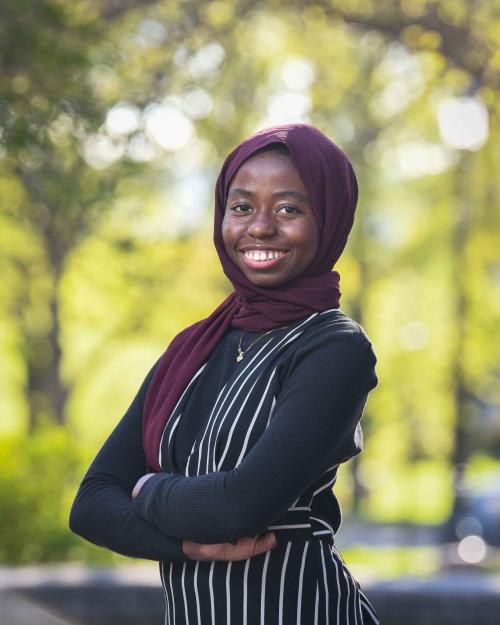During a drive around Fez, Morocco in 2022, Mardiya Shardow ’23 knew that her experiences that day were worth remembering. So as soon as she got back to her room, she wrote down everything she could remember.
This year, as she was creating her senior project as a student in the Humanities Scholar Program (HSP) in the College of Arts & Sciences, she vacillated between her ideas for a novel or a poetry portfolio and began to write about this daytrip with her twin sister as a poem — which grew into a short story.
Shardow read part of her story during the end-of-year HSP research conference May 5, which included 45 presentations by senior undergraduates. Students in the program undertake independent, interdisciplinary undergraduate research in the humanities, and take part in a series of curated courses, structured mentorship, special programming and research opportunities and funding.
“Muhammed, our driver, took us to the home of an old friend. Outside the house was an ordinary clay structure with two ornate lion brass door knockers placed vertically from each other,” Shardow wrote in her story. “The bigger one was placed above the other. ‘One for friends and another for strangers,’ Muhammed explained. Here we are, my twin and I, strangers becoming friends. Inside, colors danced before my eyes and familiar polychromatic, geometric patterns covered the floors, walls, ceilings, and indoor balcony above.”
Shardow’s story continues throughout the day, ending with this phrase: “Mardiya, have you honored your father today?”
“Our driver said this to another driver in Arabic and I thought ‘how glorious,’ ” Shardow said. “This made me think about honoring my parents – have I been doing a good job honoring my parents and living the life they would want me to live? It made me think more about the concept of honor and whether that’s something I even want or need to do.”
Shardow, an applied economics and management major, is minoring in creative writing. With the support of her advisor, Ishion Hutchinson, associate professor in the Department of Literatures in English (A&S), she compiled a poetry portolio for her HSP project, including this short story, which started out as a poem.
“It was great to engage with other humanities students, which is hard to do as a business student,” Shardow said of the HSP program. “Having that community of writers was really important to me.”
Students apply to be Humanities Scholars in their sophomore year and can be from any of Cornell’s schools and colleges, provided they have a major or minor in the humanities.
“It has been so exciting watching each member of this particular group of students thrive,” said Durba Ghosh, professor of history and director of the Humanities Scholars Program. “We have had biology students work with faculty in Near Eastern studies, students from engineering learn from philosophers, information science students work with historians, physics majors work with music faculty.
“As we welcome our fourth cohort of students in fall 2023, I’m so excited to see how successful the program has been, and it’s all because of our fabulous students and the support of committed faculty.”
This fall, Lawrence Glickman, the Stephen and Evalyn Milman Professor in American Studies (A&S), will act as HSP interim director for the 2023-24 academic year while Ghosh in on sabbatical.
Dean Alvarez ’23 also presented at the conference about his project studying how ethics plays a role for people who work in machine learning.
“AI is going to be part of all of our lives, so there’s this question of ethics that’s becoming more and more popular,” said Alvarez, who’s majoring in computer science and minoring in philosophy. “To say that you need to be more ethical is easy to say, but not exactly easy to do.”
Alvarez wanted to study how tech companies take ethical considerations and actually put them into practice, so he reached out to tech workers across the country for 45-minute interviews. One of his first challenges was to get people to agree to talk about this issue.
“I had to break past the barrier of what people think ethics is and what it actually is in practice,” he said.
Most of the workers Alvarez interviewed said that ethical concerns weren’t necessarily addressed in company policy other than traditional trainings, but rather in the culture of the company. Many of them spoke of being cognizant of the amount of energy that computers use and seeking ways to minimize ethical concern.
Alvarez plans to continue examining metrics and other ethical aspects of computer science work as he begins doctoral studies in computer science at the University of Illinois at Urbana-Champaign
Alvarez said the Humanities Scholars Program helped him connect with his own humanities interests and learn about others’ work.
“We did a seminar class where we read Toni Morrison’s ‘The Bluest Eye,’ which I loved, and did a presentation on a piece of art,” he said. “It was unexpected that I would really enjoy working on a presentation on this art … and then I went back to doing my algorithms homework.”






